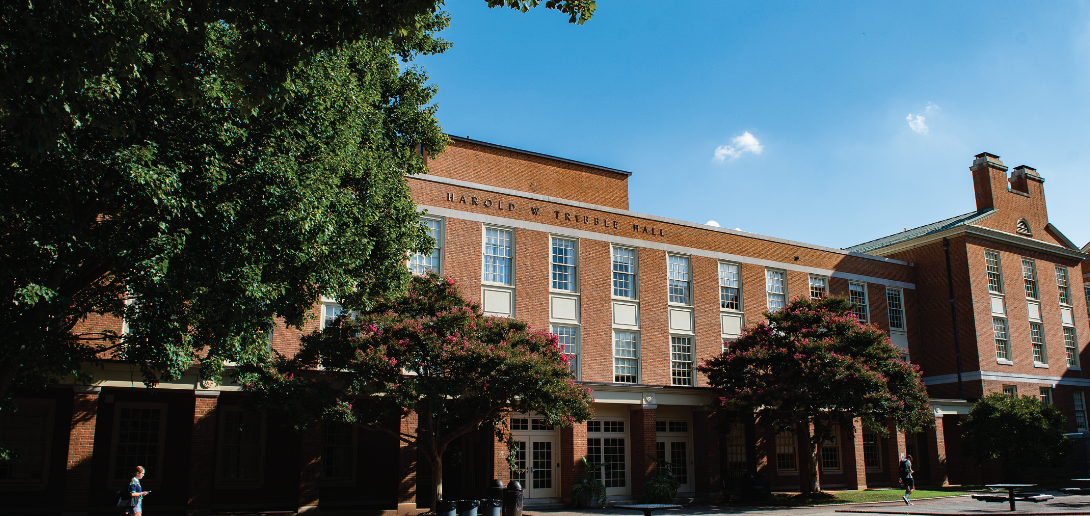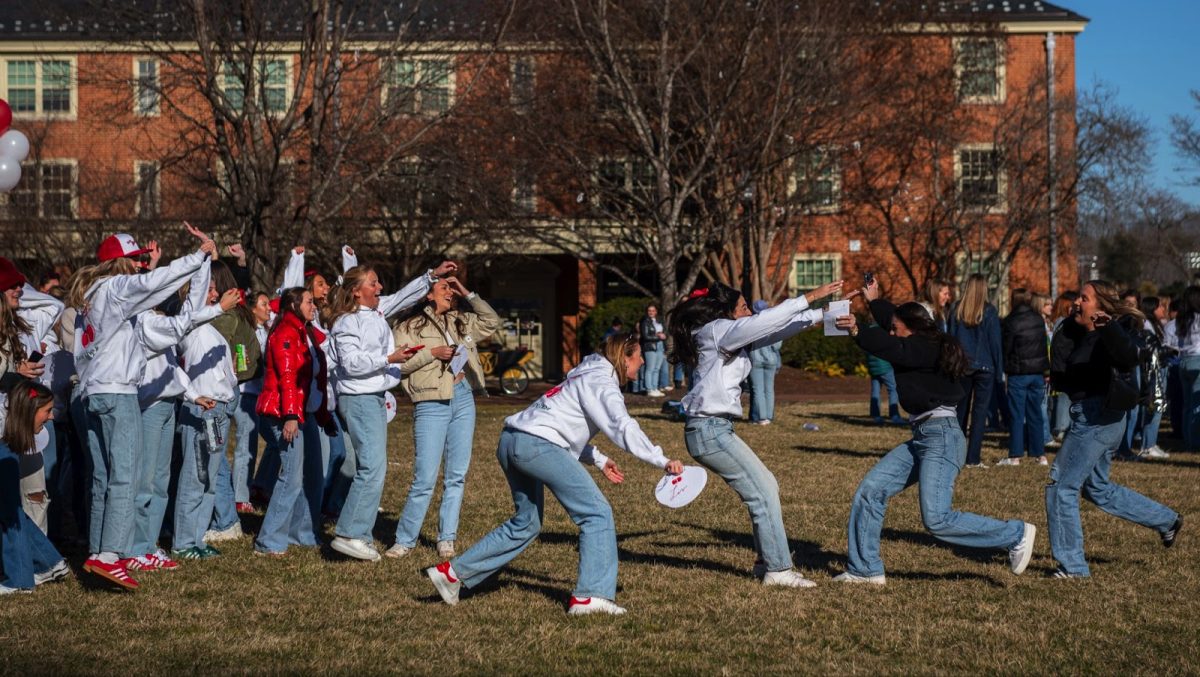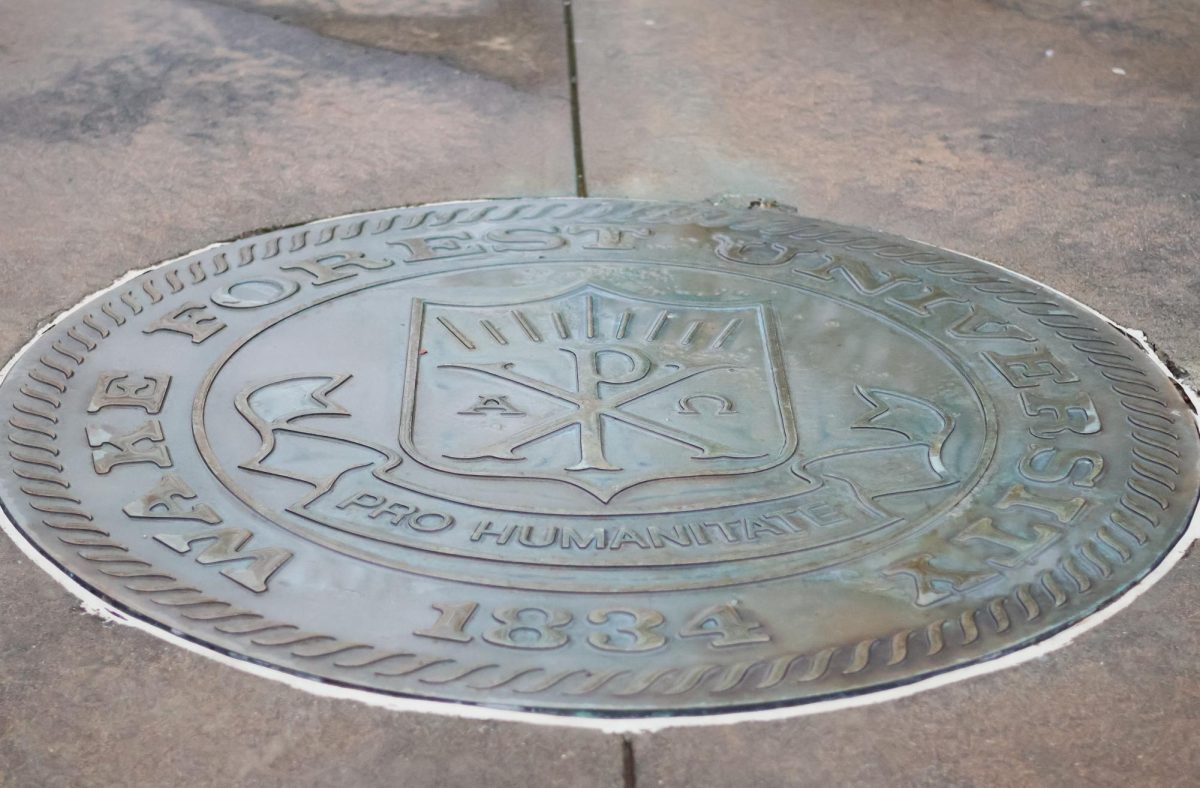Nationwide, college students are becoming less interested in studying the humanities. According to the co-director of the American Academy of Arts and Sciences’ Humanities Indicators project, Robert Townsend, “the study of English and history at the collegiate level has fallen by a full third” in the past decade. Meanwhile, “Humanities enrollment in the United States has declined overall by 17 percent.”
This plummet is not without its explanations, many of them catalyzed by the inevitable consequences of a new, internet-dominated world. But while we could sit around and debate ad infinitum about the specifics, lamenting the end of the glory days of literary studies, what is needed right now are solutions.
Being an English major at Wake Forest has granted me the rare privilege of getting to field the grievances and opinions of classmates majoring in normal, societally acceptable fields. I have found that, in those rare instances in which my peers are not utterly perturbed by my financially unsound decision to pursue English studies, they often feel the need to explain to me why they aren’t majoring in something similar. I invoke my anthology of flimsy anecdotes for one specific reason: people still care about art.
I believe with dogmatic conviction that college students today are still interested in how music, poetry, film, comedy and other media function. Since they are humans, they have an innate interest in how what they consume between classes and before bed shapes them as a person. They just aren’t seeing their interests reflected in what is available for study at Wake Forest.
I propose two solutions to this issue, both of which can help revitalize a dying field that is nearly indistinguishable from a pyramid scheme to outsiders.
The immediate solution is to hire more writing and creative writing teachers. Right now, we simply do not have enough writing faculty to keep up with the demand from students. Speaking from personal experience and the accounts of my classmates, it is frustratingly difficult to get into a creative writing workshop, while many English classes feel spookily under-booked.
I believe with dogmatic conviction that college students today are still interested in how music, poetry, film, comedy and other media function…They just aren’t seeing their interests reflected in what is available for study at Wake Forest.
When it comes to creative writing, there is nowhere to hide. There is no regurgitation, no such thing as a safe answer — the creative writer has more agency and more power than any other student performing any other kind of exam. The writer must create something out of nothing, and she must take full responsibility for those decisions. In this way, it is easy to understand how crucial of an exercise this type of work can be. It is inherently self-propelling and pushes the student to do their absolute best — to perform not for someone else but for the act itself. They are striving not for an A, but for the feeling of achievement, the power of conjuring specific emotions in others. It is a more admirable goal to give a professor something they didn’t know they needed than to give them what they already want.
We need more writing and creative writing professors. There needs to be more attention directed to the creative pursuits of students because something like genius can appear anywhere — except in a vacuum.
Another way to galvanize enthusiasm for English studies is to imagine it as the glue that holds so many other subjects together. What if humanities classes became cognizant of their ability to dissolve into other disciplines? What if they could be reimagined and marketed in such a manner that they were not only enticing but materially effective to take? Because let’s face it — being an academic today is not as feasible of a reality as it used to be.
This past spring, The New Yorker released an article titled “The End of the English Major”. At first glance, I thought it would be a worn-out piece lamenting the bygone eras of literary golden ages, but it turned out to be something far more devastating. What really rattled me was how convincing the argument was that STEM is actually an exciting field to be in right now. As in, maybe those engineering students strung out on caffeine and Python are not selling their souls for a guaranteed six-figure salary but are working to be a part of this generation’s most significant advances.
What if humanities classes became cognizant of their ability to dissolve into other disciplines?
Describing his experience touring Harvard’s billion-dollar Science and Engineering Complex, Nathan Heller writes, “In school, I had been friendly to the sciences, but I had majored in the humanities, and since then I’d never had a moment’s real regret. After half an hour in this new complex, I was prepared to do it all again and choose the interesting, vivifying life path of an engineer.” At first, I was terrified of the prospect of a future in which science and math are more fun than music and philosophy — a future in which the humanities never recover from their current stagnation.
Then I wondered if this was simply an error on my part, a myopic viewpoint in which I could not fathom a revitalization in English studies that is indebted to advances in the harder disciplines. After all, the underlying issue with English studies is that it has become a lonely, isolated field. The people simply aren’t there. If it can no longer stand firmly as an end in itself, maybe it can become more aggressive in how it shapes other disciplines.
Of course, this is not a plea to do away with the canon and nix Shakespeare and Dickens from the university. The literary titans are essential to our understanding of our language; however, we need to give students who cannot pursue a degree in the humanities a better reason to take more English, philosophy or art classes than required. We need to make these classes exciting, challenging, rewarding and useful, equipping students with an intellectual arsenal designed for our modern age.















